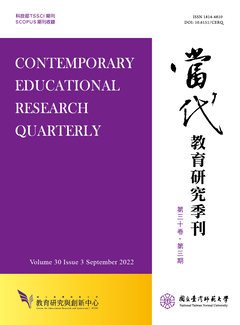

Mathematical modeling stresses the connection between the real world and mathematics, and it is a mathematical literacy related to knowledge integration. This study aims to analyze and understand the cognitive factors and translation mechanisms of pre-service teachers in their processes of mathematical modeling. The results can be considered in developing teacher education programs. The method is to use semi-structural activities, to observe the modeling process of 26 pre-service teachers divided into 5 groups. Qualitative analysis is employed afterwards. The results as what follows: Firstly, there are five cognitive factors that affect pre-service teachers’ modeling process: (a) experience recalling, (b) simplification and supposition, (c) object abstraction, (d) object translation, and (e) analysis of relations among mathematical objects. Secondly, the whole process of modeling is coherent. Thirdly, there are two ways of translation for pre-service teachers in their modeling processes: (a) object model, a model consisting of physical conditions and focusing on physical objects, and (b) action model, a model consisting of mathematical objects, but focusing on actions on those objects. This study gives concrete suggestions to mathematical modeling courses according to its results, and can be considered in designing mathematical modeling courses for teacher education programs.

This work is licensed under a Creative Commons Attribution-NonCommercial 3.0 Taiwan License.
Center for Educational Research and Innovation, National Tawain Normal University
162, Ho-Ping East Rd, Sec. 1, Taipei, Taiwan | Tel:+886-2-7749-3670 | E-mail: cerecerq@gmail.com
CERI | NTNU | E-mail Alerts | Open Journal System
© 2014 CERI-NTNU
